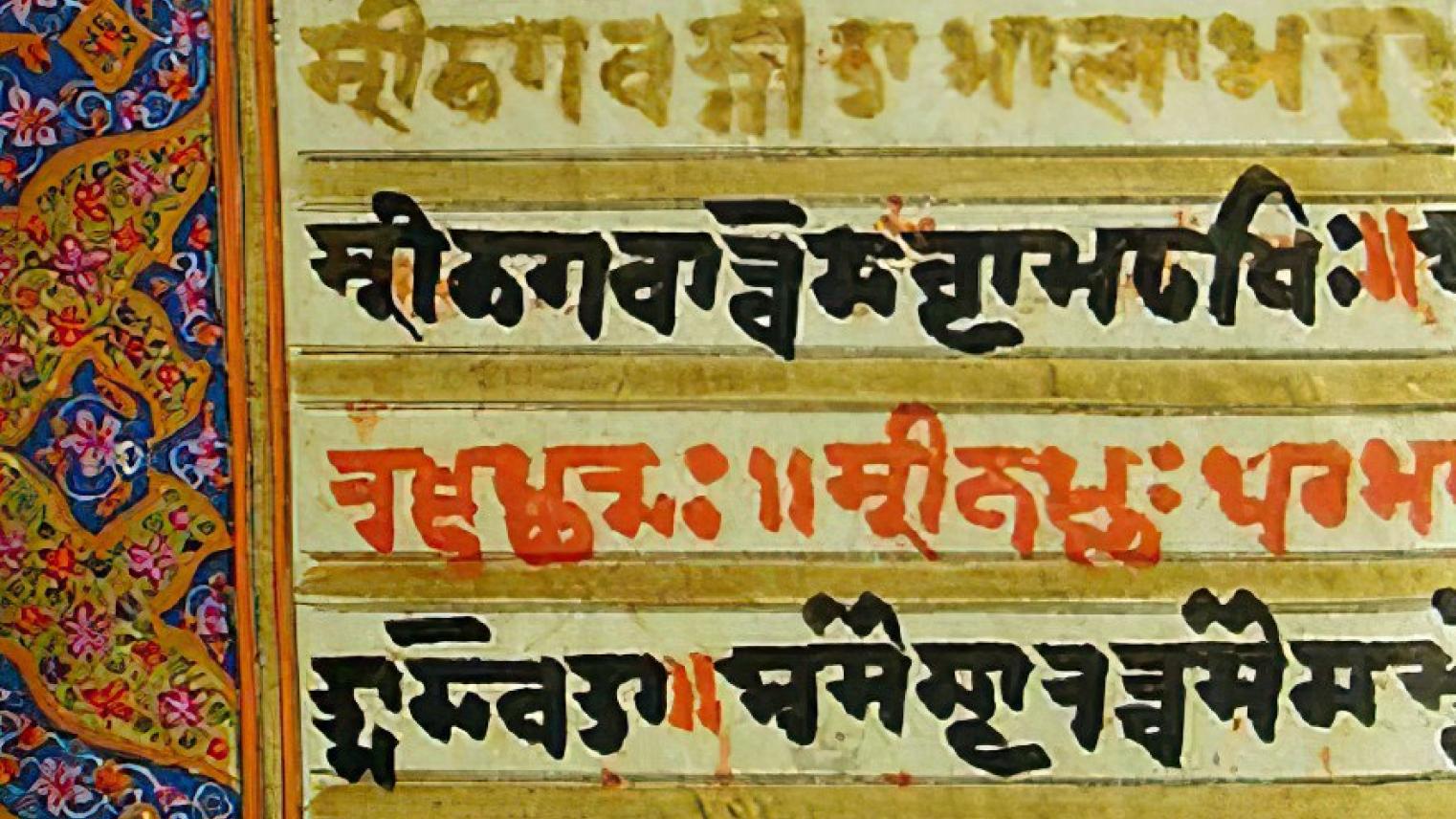The Śāradā Script

Sanskrit, the classical language of India, is unique in that it does not have its own script. It is written in the script of the community in which it is employed: Devanāgarī in North India, Grantha in Tamil Nadu, Javanese in Java and Tibetan script in Tibet.
Sanskrit manuscripts created in Kashmir between the seventh and nineteenth century were written in a local script called Śāradā, an epithet of Sarasvatī, the goddess of learning. Many manuscripts crucial for the understanding of Kashmiri Śaivism and Tantra were written in Śāradā, and without knowledge of the script, they remain inaccessible.
ANU hosted a free online three-day workshop from 15 to 17 February, led by Rakesh Koul of Bengaluru (Bangalore), India and Veronica Peer of Pune, India. A truly international cohort of about 20 students took part, from Brazil, Hong Kong, Denmark, USA, Italy, Sri Lanka, Germany, India, Australia, France, UK, Switzerland, Finland, Spain and Romania.
If anyone expected Śāradā to resemble the well-known Devanāgarī script, they would have been very surprised. While the basic principle of letter formation and indeed the origin in Brahmi script is common to both, the form of individual Śāradā letters is completely different. It cannot be deciphered without specialist guidance and lots of practice.
The students responded very warmly to Rakesh and Veronica's instruction and by the end of the workshop many expressed new confidence to dive into the world of Kashmiri manuscripts.